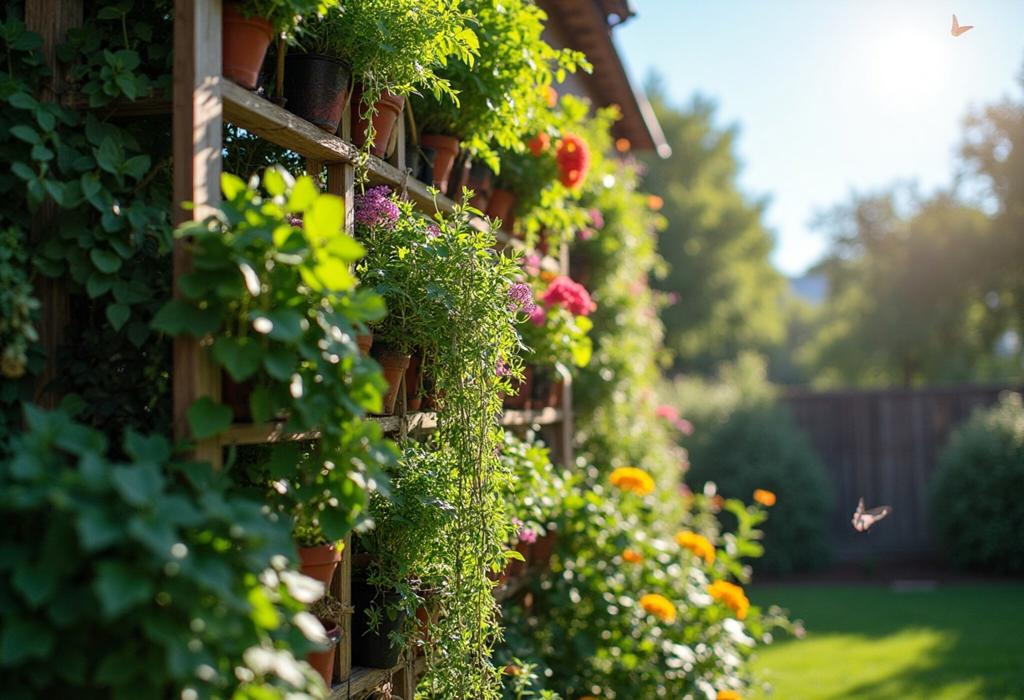For more details on this content, please review the step-by-step guide and frequently asked questions.
How To Start a Vertical Garden in Your Backyard

Step-by-Step Guide
Choose the Right Location
Select an area in your backyard that receives adequate sunlight for the plants you intend to grow. Most vegetables and herbs prefer 6-8 hours of sunlight a day.
Select Your Vertical Garden Structure
Decide on the type of vertical garden system you want. This could include wall planters, pallets, trellises, hanging pots, or built-in vertical planter systems.
Gather Your Supplies
Collect all necessary materials including pots or containers, a structure to hold the containers, a watering system (if needed), potting soil, and plants (herbs, flowers, or vegetables).
Prepare the Planters
If using a wooden pallet, ensure it is clean and not treated with harmful chemicals. Line it with landscape fabric to promote proper drainage and soil retention. For pots, ensure they come with drainage holes.
Plant Selection and Arrangement
Choose plants that thrive in vertical conditions. Climbing plants (like tomatoes or peas) can be great, as well as herbs (like basil or mint). Consider the spacing and height of the plants when arranging them.
Planting
Fill your planters or pots with potting soil, leaving some room at the top. Plant your selected plants, ensuring their roots are securely placed in the soil. Water them lightly after planting.
Watering and Maintenance
Establish a consistent watering schedule. Vertical gardens can dry out faster than traditional gardens. Check the moisture level frequently and ensure your plants are healthy and free from pests.
Supporting Growth
As your plants grow, provide support as necessary. This may involve tying back climbing plants, or providing additional stakes or trellises.
Fertilizing
Feed your plants with an appropriate fertilizer to ensure they receive the nutrients they need to thrive. Follow recommended dosages for the type of plants you are growing.
Harvesting and Enjoying
Once your plants begin to produce, enjoy the fruits (or vegetables) of your labor! Regularly harvest to encourage further growth, and keep your vertical garden looking fresh.








